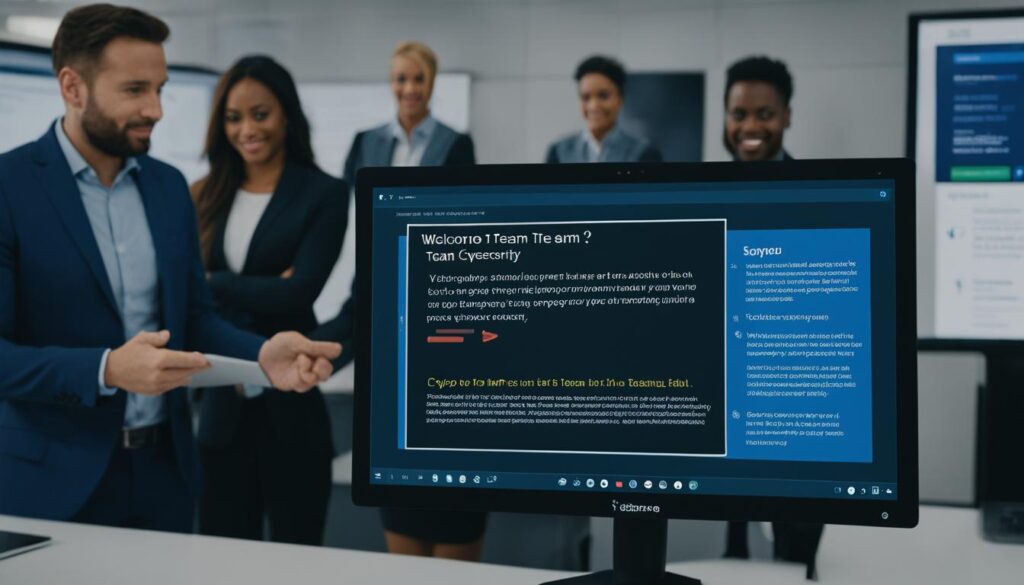Did you know 77% of new hires reaching their first performance goal did so after formal onboarding? This shows how important employee payment is early on, especially during training. Understanding how you’ll be paid, the benefits, and what happens before you officially start helps make your move a lot easier.
When it’s time for orientation and training, the law often says employees must be paid. This is under the Fair Labor Standards Act (FLSA). It sees these activities as part of what you should get paid for since they’re needed to start your job.
Knowing your rights as a new team member early on is key. Employers must set aside money to pay for this important time. This ensures you start your job fairly and correctly.
Key Takeaways
- Employers are typically required to pay new employees during orientation and onboarding
- The FLSA considers many onboarding activities as compensable time
- Mandatory training and activities during onboarding are usually paid
- Employers should budget for compensating new hires during the onboarding process
- Voluntary activities outside of normal business hours may not require compensation
Understanding the Onboarding Process
Starting a new job means going through an important step: onboarding. It shows you everything you need to know, from knowledge to skills. This helps you do well in your job and meet the company’s goals. Knowing what onboarding involves makes this time exciting and less stressful.
What is Employee Onboarding?
Employee onboarding is more than just paperwork and meeting new people. It introduces you to your job, your company, and its culture. It’s a chance to really understand what your role is. Also, you learn how you can start making a difference right away.
Typical Onboarding Activities
During onboarding, you’ll do lots of different things to help you blend in. This includes:
- Completing necessary paperwork, such as tax forms and benefits enrollment
- Meeting your coworkers and key stakeholders within the organization
- Attending orientation sessions to learn about company policies, procedures, and culture
- Receiving training specific to your role and responsibilities
- Shadowing experienced employees to gain hands-on experience and insights
Your onboarding might go beyond your regular hours. According to the Department of Labor, this time is still considered work. This means, if your onboarding goes over your usual hours, you should still be paid for it.
Compensation During Onboarding
When you start a new job, it’s key to know how compensation during onboarding works. The FLSA lays down what counts as time you should be paid for. If it’s part of your job, mandatory, and happens during working hours, you should be paid.

Fair Labor Standards Act (FLSA) Requirements
The FLSA sees employment as when a company “suffers or permits” you to work. So, if your work makes you take part in an event or job-related task, they should pay you. This rule usually covers onboarding as it’s vital and tied to your main job tasks.
Paid vs. Unpaid Onboarding Activities
You’ll be paid for certain tasks during onboarding including:
- In-person and online training
- Filling out new hire paperwork
- Shadowing veteran employees
- Pre-onboarding orientation
- In-person and online lectures
- Pre-employment working interviews
But, there are exceptions. Employers don’t need to pay for events, meetings, or training that meet all these conditions:
- The event happens outside usual work hours
- It’s up to you if you go
- It’s not about your work
- No work gets done at the event
Imagine your employer has a welcome party after work that you don’t have to go to. It’s not about your job; they don’t have to pay you for it. Also, time spent in the hiring process, like applications and interviews, isn’t paid.
Calling an event “voluntary” doesn’t automatically make it uncompensated. If the event is work-related and you’re pressured to go, you might need to be paid. When in doubt about pay, talk to your HR or manager for help.
Employer Responsibilities During Onboarding
As a new employee, you should know that onboarding is a shared effort. HR and your manager work together. HR checks quality and takes care of legal stuff. Your manager guides you from day one.
Communicating Compensation Policies
Understanding payment is key during onboarding. Your manager and HR will explain a few important things to you, like:
- Your base salary or hourly wage
- Any bonuses or commissions you may be eligible for
- Benefits packages, such as health insurance, retirement plans, and paid time off
- How you’ll get paid and when
They will tell you all this at the start to avoid later confusion.
Providing Clear Expectations
Setting your job’s scene is vital, too. They should tell you what you’re doing and what goals to meet. This could mean sharing:
- A detailed job description listing what you’ll do
- The company’s mission, values, and culture
- Meeting your team and the important people you’ll work with
- Any training or sessions you must attend
Your manager will be key here. They ensure you understand what to do. HR, on the other hand, manages paperwork like making sure you can work and handling taxes.
Starting with clear info on pay and the job’s expectations can make onboarding great. It helps new hires feel ready and important.
Do You Get Paid for Onboarding?
When you start a new job, you might worry about getting paid for onboarding. Usually, yes, you do get paid. Employers must pay you for the time you spend on activities like in-person or online training and filling out forms.
Mandatory vs. Voluntary Activities
Knowing what’s mandatory and what’s not during onboarding is key. If your employer makes you do something, you should be paid for it. This includes things like in-person training, online modules, and paperwork.
- In-person training sessions
- Online training modules
- Completing new hire paperwork
- Shadowing employees to learn job responsibilities
- Attending a pre-onboarding orientation
However, things that are optional, like company parties or training after work hours, might not be paid.
Onboarding During Regular Business Hours

Most onboarding happens during the work day, and you should be paid for this time. This includes any training, online work, or filling out forms. Even if it’s before you officially start, if it’s during the normal work day, they should pay you.
Pre-Employment Tasks and Compensation
Tasks like applying, interviewing, or getting a background check usually aren’t paid. But, if you have to do a job-related task before you officially start, they should pay you for that.
To wrap up, you should get paid for most onboarding tasks, especially if they’re during regular hours. If you’re not sure, talk to HR. They can help clear things up for you.
Streamlining the Onboarding Process
Employers looking to improve onboarding can use a checklist. This list highlights what new hires need to know and do. It ensures new employees feel cared for and valued right away.
Using an HRIS for online onboarding makes things smoother. It cuts down on paperwork and time. With an HRIS, employees can start learning before their first day. This way, they become productive faster.
HR and hiring managers working together is crucial. They should make a detailed plan for the new hire’s first day. This plan sets tasks and goals, plus a 30-60-90 day roadmap showing what’s expected.
Here are the essential parts of a good onboarding checklist:
- Company overview and culture
- Job responsibilities and expectations
- Introduction to team members and key stakeholders
- Training on essential tools and systems
- Benefits enrollment and payroll setup
- Regular check-ins and feedback sessions
Streamlining onboarding, with a step-by-step approach for new hires, boosts their experience. This leads to happier employees, less turnover, and better work from everyone.
Key Takeaways
When you start a new job, knowing your compensable time rights is key. Your employer should pay for most training and orientation during work hours. Yet, some events you choose to attend outside working hours are not paid. This is according to the Fair Labor Standards Act.
To make onboarding smooth, companies use checklists, online systems, and set plans for the first days. This helps new hires know what to expect and how to succeed. Remember, job interviews and some tests may not be paid. But, training and most parts of onboarding usually are.
Both HR and your boss help make your start successful. HR checks everything is done right and follows the law. Your boss guides you in your new role. By working closely and being clear about pay, a great onboarding experience is created. This sets you up for success in the long run.
FAQ
Are employers required to pay new hires during onboarding?
What activities are typically included in the onboarding process?
What is considered compensable time during onboarding?
What onboarding activities are not considered compensable time?
Who is responsible for the onboarding process?
How can employers streamline the onboarding process?
What should be included in a first-day agenda for new hires?
Author
-

Michael Chen's expertise lies in employee onboarding and training development. His methods have transformed new hire experiences, boosting engagement and long-term retention.
View all posts



